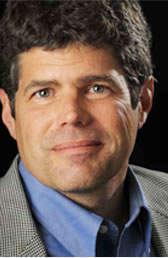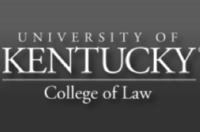 This year, ironically, it was Fancy Farm itself that was the recipient of some of the most potent barbs from the speaking dais.
This year, ironically, it was Fancy Farm itself that was the recipient of some of the most potent barbs from the speaking dais.
The annual Fancy Farm picnic is famous for hosting an annual platform for face-to-face political zingers, barbs and put-downs. It is unique to the nation and perhaps the last living remnant of the historic stump speaking tradition of political campaigns that preceded modern media and the current TV/Internet/Social Media dominance of political campaign messaging.
The old-fashioned way of political campaigning on display at Fancy Farm is, some are now arguing, a useless and corrosive relic that needs to be politely euthanized.
Republican gubernatorial candidate Matt Bevin began his speech by questioning the value of what he characterized as the mean-spirited vacuity of Fancy Farm rhetoric. “We are celebrating our divisions, and we’re doing it in the childish way that frankly does not resolve any of the issues we face.” Bevin then zigged and zagged with several variations of what strove to be a statesman-like speech, including the Pledge of Allegiance, but instead came off as more of a politically tone deaf misfire for what is expected at Fancy Farm.
The insurgent Republican nominee for governor, Matt Bevin, has already defined himself as a successful critic of Kentucky political traditions. Bevin’s first major political pronouncement after winning the Republican primary was that the statue of Jefferson Davis in the state Capitol Rotunda, where it had been on display for over 50 years, needed to go because it was offensive and out of step with modern values. And Bevin’s leadership stock soared as most other Kentucky politicians –from both political parties –quickly agreed and also called for the removal of the Davis statue from the Capitol rotunda. Will Bevin’s declarations against Fancy Farm, the 135 year old political stump speaking picnic, meet with similar success or be viewed as an overreach? That is the question playing out now as the Fancy Farm relevancy discussion intensifies.
After Bevin’s speech some commentators seemed sympathetic to Bevin’s questioning of the modern value of Fancy Farm. They asked, What value is there, really, from candidates running for high political office congregating in deep Western Kentucky for one weekend in August each year to simply throw hard political punches and cutting verbal jabs at their opponents?
Fancy Farm seems to invite and even celebrate the most frivolous of political maneuverings and machinations. Observers cheer and jeer their candidates and political party –often jeering more than cheering. The criticisms being leveled at Fancy Farm are largely high-minded appeals that liken Fancy Farm to a political form of Internet bullying or vicious Twitter insults, which likewise have no role in our public discourse and shouldn’t be tolerated or encouraged.
Certainly, there would be value in better ensuring that the speaking and politicking at Fancy Farm more closely honor the historic practices Fancy Farm seeks to celebrate. It’s hard to disagree that, at times, Fancy Farm rhetoric and activities get derailed into something more akin to a vaudeville act than old-timey political stump speaking. I’m not suggesting a sanitized version of Fancy Farm. That would miss the point. One of the great values of Fancy Farm is that it provides a political forum that is unsanitized, as political commentator Scott Jennings aptly put it.
Citizens and voters today are bone weary of the modern consultant-controlled and remote TV/Internet/Social Media political campaigns. More than bone-weary, they are starving for authenticity and spontaneity. Something extinguished by the modern political campaign machines. Fancy Farm offers a glimpse, even if only a crude and momentary one, to voters seeking genuine human contact and real unscripted interaction with political candidates. The opportunity for that kind of “old fashioned” political interaction is rare and seemingly on the cusp of extinction. Fancy Farm, in it’s own rambunctious, rakish and rube-like ways is trying to fan that flame before it gets extinguished entirely.
At bottom, Fancy Farm may be a brutish attempt at trying to preserve something noble in politics: the genuine human element. An attempt, by the way, that all well-mannered and high-brow efforts to retain have failed to preserve. And, oddly, the raw carnival nature of the way Fancy Farm captures this voter-to-candidate connectedness may be what helps it succeed.
The chief complaint from Fancy Farm critics seems to be that the weekend picnic late each summer brings out the worst in our political instincts by encouraging candidates to say harsh, personally cruel and caricature-ish things about one another that demeans and diminishes our political process and needs to be eliminated rather than celebrated.
Ironically, the harshest barbs hurled against gubernatorial candidate Matt Bevin weren’t originated at Fancy Farm but were quoted directly from television, internet and radio ads (our more modern campaign tools) by Senator Mitch McConnell when Bevin challenged Senator McConnell in the Senate primary last year. And the same can be said for much of the harshest Fancy Farm rhetoric—it is merely a repetition of what has been (or will be) run for months as paid political advertisements on television, radio and the Internet.
Ironically, then, what really makes Fancy Farm appear so crude and cruel isn’t what is actually said or done from the dais. Rather, it is simply because it is being said face-to-face rather than said more palatably by an actor in a soft voice-over for a paid political television advertisement.
Perhaps, what is truly shocking about Fancy Farm is that it reminds us of just how uncivilized, coarse, bizarre and ridiculous our “modern” political campaigning methods have become. And how it is actually these modern political campaign tactics that may be the real relics that are corroding our political process and need to be politely euthanized.
I believe Fancy Farm is a jarring reminder of that fact. But understanding the bigger problem requires looking beyond Fancy Farm and connecting dots that are much bigger and much more worrisome than a little picnic in the recesses of western Kentucky. Eliminating Fancy Farm won’t eliminate coarse political insults from the political process. It will only relieve candidates from ever having to say it to their opponent’s face.
This doesn’t justify the excesses of Fancy Farm but does help put them into a more honest perspective.
We should all work to find ways to provide authentic political events that better provide a vehicle for citizens to interact face-to-face with their political candidates. Any move away from the “modern” political campaigning practices of spending billions of dollars annually (that’s right, billions) for paid political advertisements featuring sanitized viciousness and nonsensical blather should be encouraged.
Crude and unsavory political insults should never be the bread and butter of our modern political discourse, but until we as a society are ready to have a serious discussion about really changing that very serious and chronic malignancy in our body politic, it’s hard to take seriously those focusing in on a once-a-year annual picnic that, at worst, merely caricatures in a fun and festive way –and allows us to laugh at it— the kind of political debate that we as citizens and voters have to endure remotely and pretend to take seriously as “real political campaigning” the rest of the year.

















Leave a Reply